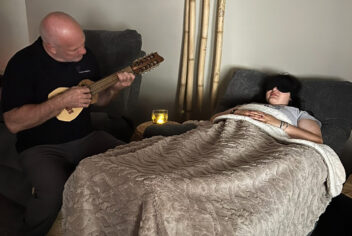Since the California Supreme Court’s 2018 decision in Dynamex Operations West, Inc. v. Superior Court of Los Angeles, California employers have been examining existing and potential independent contract relationships to see if they run afoul of the new ABC classification test presented by the court.
Criteria differentiating employees from independent contractors.
As a refresher, the ABC test presumptively considers all workers to be employees for California wage and hour law purposes.
It permits workers to be classified as independent contractors ONLY IF the contracting business demonstrates that the worker in question satisfies all three of the following conditions:
- The worker is free from the control and direction of the hirer in connection with the performance of the work, both under the contract for the performance of the work and in fact; and
- The worker performs work that is outside the usual course of the hiring entity’s business; and
- The worker is customarily engaged in an independently established trade, occupation, or business of the same nature as that involved in the work performed.
Clarifications from appellate court decisions.
Two appellate court decisions have been issued that have interpreted the Dynamex decision.
The first is Garcia v. Border Transportation Group, involving a taxi driver who was operating under a taxi permit and in some instances leasing vehicles from Border Transportation.
Focusing on Part C of the ABC test, the court held that the worker had to be currently engaged in an independently established business. It was not enough that the company contracting the worker did not prohibit or prevent the worker from engaging in an independently established business.
Because Border Transportation owned the majority of the taxi permits used, the court noted it was almost impossible for this worker to be engaged in his own independent taxi business and thus overturned summary judgement for Border Transportation.
The only silver lining for employers from this case was that the court noted that the ABC test only applied to claims related to non-compliance with the Industrial Welfare Commission Wage Orders and not other employment law claims like those for reimbursement of expenses under the Labor Code.
The second appellate court in Duffey v Tender Heart Home Health Care did not use the ABC test for interpreting another employment law, the Domestic Worker Bill of Rights (DWBR), Labor Code 1450.
The DWBR sets overtime for “personal attendants” which are employees who care for clients in the client’s home to supervise, feed, or dress a child or person who by reason of advanced age, physical disability, or mental deficiency needs supervision.
The defendant Tender Heart placed a worker in a client’s home and classified the worker as an independent contractor.
Following the Dynamex court’s reasoning, the court focused on the legislative purpose behind the DWBR when deciding which test should be used to assess whether a worker was properly classified as an independent contractor:
“[S]tatutory purpose [is] the touchstone for deciding whether a particular category of workers should be considered employees rather than independent contractors for purposes of social welfare legislation.”
Definitions of employment under the DWBR.
The court determined that the DWBR contained two alternative definitions of “employment” for purposes of its provisions:
- When the hiring entity exercises control over the wages, hours, or working conditions of a domestic worker; or
- When a common law employment relationship has been formed. The common law test is what pre-dated the ABC test in California.
The court held that the hiring entity bears the burden of establishing that a domestic worker is an independent contractor rather than an employee.
There was evidence that Tender Heart selected clients, performed the initial assessment of the clients’ needs, matched caregivers according to the clients’ needs, negotiated the amount charged to the client, and determined what portion of that amount will be paid to the caregiver.
The court noted that these facts, if established, constituted substantial control over the details of the caregiving business and thus Tender Heart would be considered as creating an employment relationship.
Tender Heart attempted to not be declared an “employer” by virtue of a statute declaring that certain domestic work employment agencies are not employers.
However, the court determined that Tender Heart did not follow the legal requirements for an employment agency under Civil Code 1812.5095 in its contract with the plaintiff, so it was not able to assert this as a defense to the plaintiff’s claim.
For those nonprofits asserting coverage under the employment agency law Civil Code 1812.500, strict compliance with the statutory requirements for establishing a non-employment relationship with workers it places in clients’ homes is essential.
Future developments.
What both these cases demonstrate is that classifying workers as independent contractors holds great risk for employers.
Not only are there different tests under different employment laws, the courts are focusing on whether the employment law in question is social welfare legislation, and if so, interprets the laws’ coverage broadly to classify workers as employees.
In an attempt to resolve the confusion caused by multiple independent contractor tests, the California legislature joined the debate with a pair of competing bills.
Assembly Bill 5, supported by organized labor, is a placeholder bill seeking to codify the application of the ABC test to other statutory claims like workers compensation and unemployment insurance.
A Republican assembly member proposed a more business-friendly bill, Assembly Bill 71, which would legislate away the ABC test, replacing it with the “right to control test” established by the California Supreme court case S.B. Borello & Sons, which test is used for other employment statutes’ definition of the independent contractor classification.
Nonprofits should keep an eye on these bills to see if there are further changes in this area.
For our members, Nonprofits Insurance Alliance is providing a free webinar training on independent contractor classification on October 1st, during which members can ask questions.
Registration for this webinar will be available in September. We also provide webinars on new California laws for our members each year in January.





